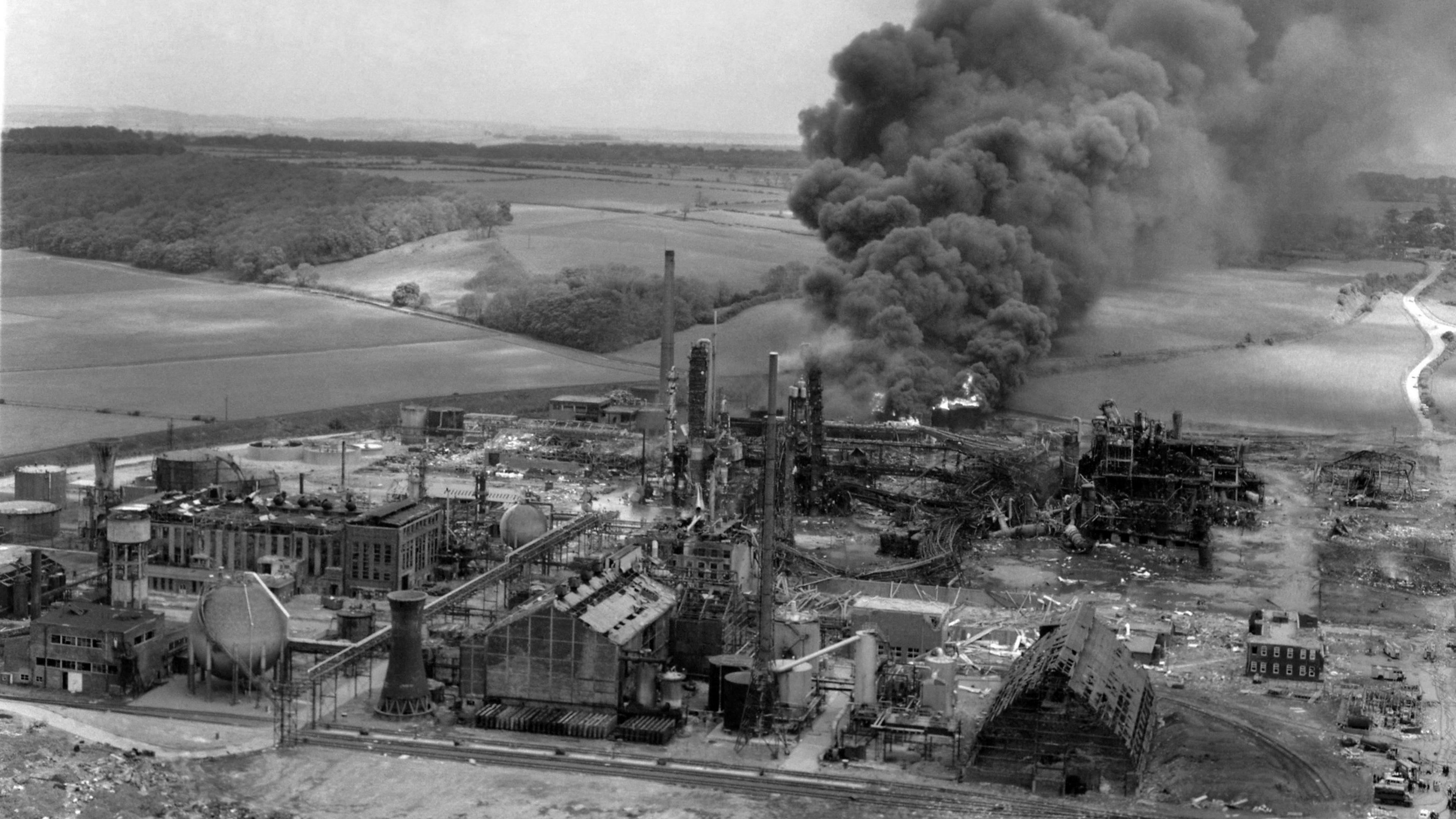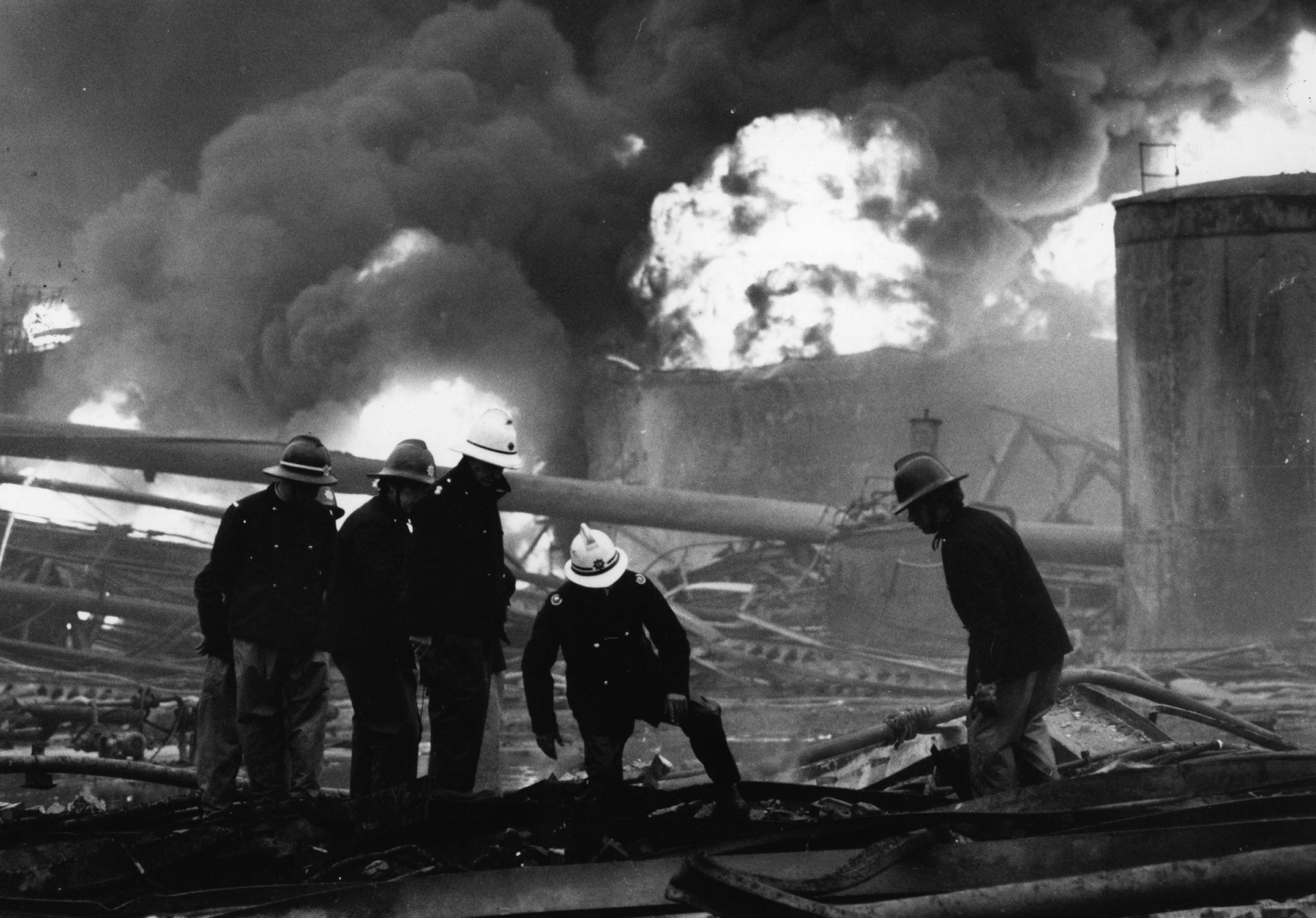Flixborough chemical plant disaster 'not forgotten' 50 years on
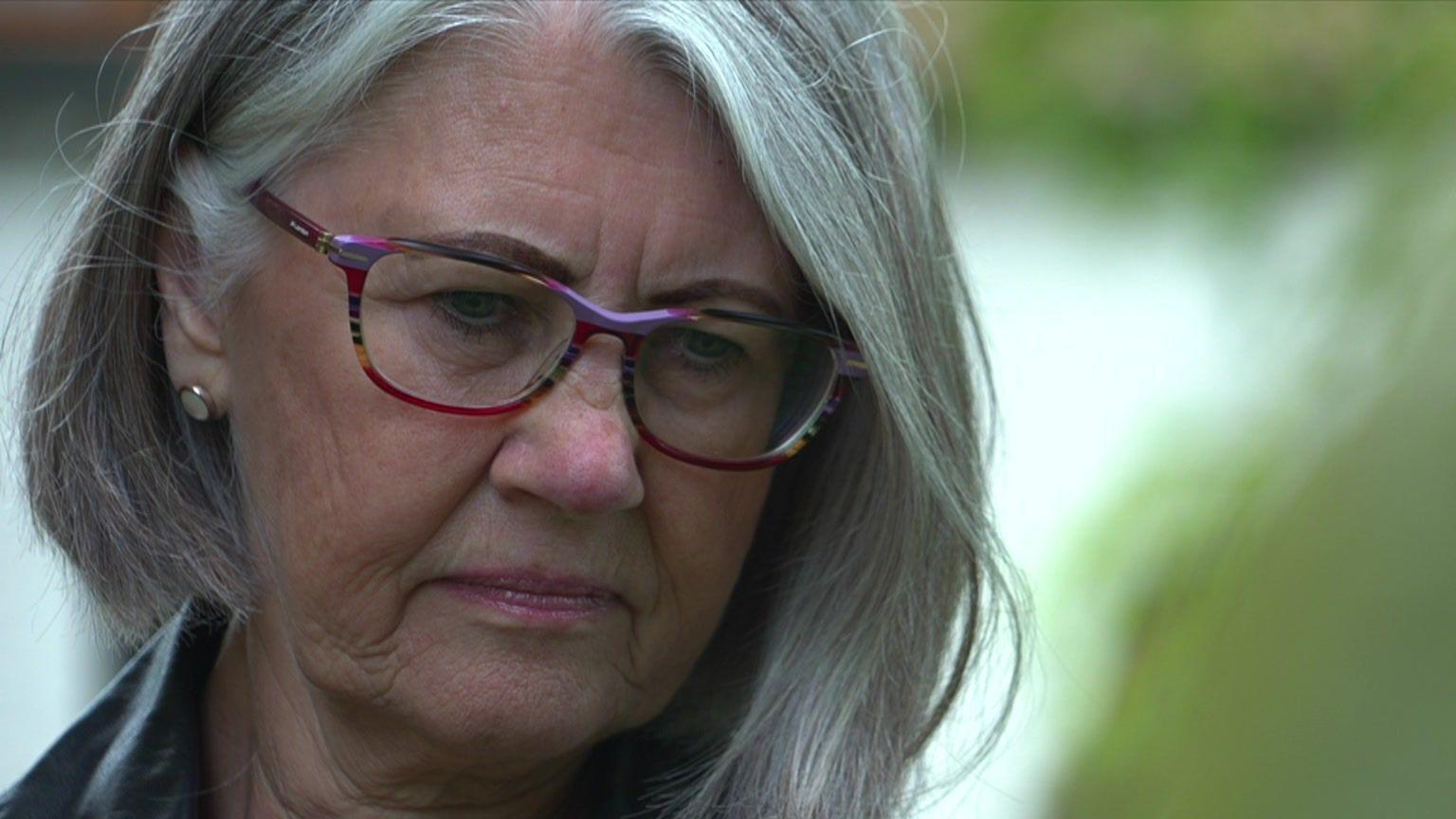
Barbara Nimmo: "You don't forget those people that died on that Saturday morning"
- Published
On 1 June 1974 a huge explosion at a chemical plant echoed far and wide from the banks of the River Trent in North Lincolnshire. It made Barbara Nimmo think a bomb had gone off nearby. The catastrophe at Nypro, near Flixborough, was a technical failure, claiming the lives of 28 workers and it would lead to tightened industrial safety regulations.
Plumes of black smoke spiralled in the air for miles, tiles were ripped off roofs, windows and doors were blown out and a community was left dazed and confused.
For Barbara Nimmo, then a newly qualified 21-year-old nurse who was also pregnant, it resembled a "war zone".
In reality, it was one of Britain's worst peacetime explosions that left an indelible mark on the lives of many.
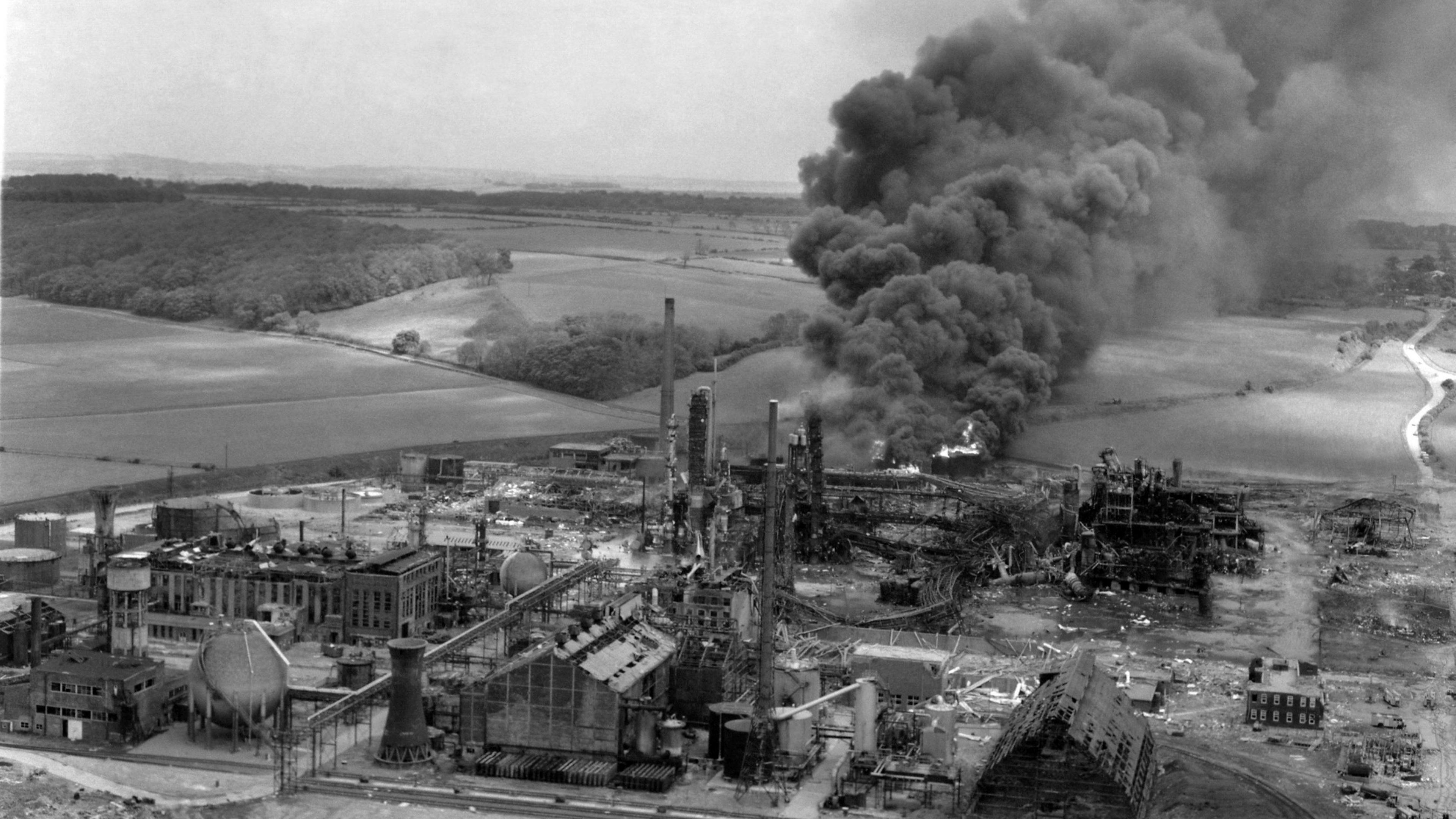
The Nypro chemical plant, near Flixborough, produced caprolactam, a chemical used in the manufacture of nylon
That Saturday afternoon Mrs Nimmo, who was off shift, was shopping at Scunthorpe market when disaster struck four miles away. She had skipped bed rest for some retail therapy.
"When I heard the loud bang, it sounded like a bomb had gone off and I remember trying to push my way out of the market.
"It was just a shock to see what was going on.
"There was glass everywhere. The houses were demolished almost. The bank on the High Street had lost all its windows. Marks and Spencer's windows had gone.
"There was a sense of panic because people didn't know what was happening."

Mrs Nimmo, from Flixborough, was a 21-year-old newly qualified nurse who was off duty at time of the blast but helped out at hospital
Twenty-eight workers died and 36 were injured out of a total of 72 people on the site. However, the wider consequences of the blast went beyond the plant with a further 53 suffering injuries.
Officials believed these figures could have been much higher had it happened on a weekday.
The Nypro plant produced caprolactam, a chemical used to make nylon material for clothing, carpets, fishing nets and rope.
Three months before the explosion, the plant had to be shut down after a hazardous substance leaked from a crack in one of the reactors. It was subsequently rectified with a temporary pipe installed and production continued.
However, on 1 June, the pipe failed leading to a chemical leak, which caused a massive vapour cloud to ignite.
The blast, which occurred at about 16:53 BST, was heard as far away as Grimsby and Doncaster.
One of those working on the site was Eddie Hotchin, a chemist who had only been working at Nypro for six months.
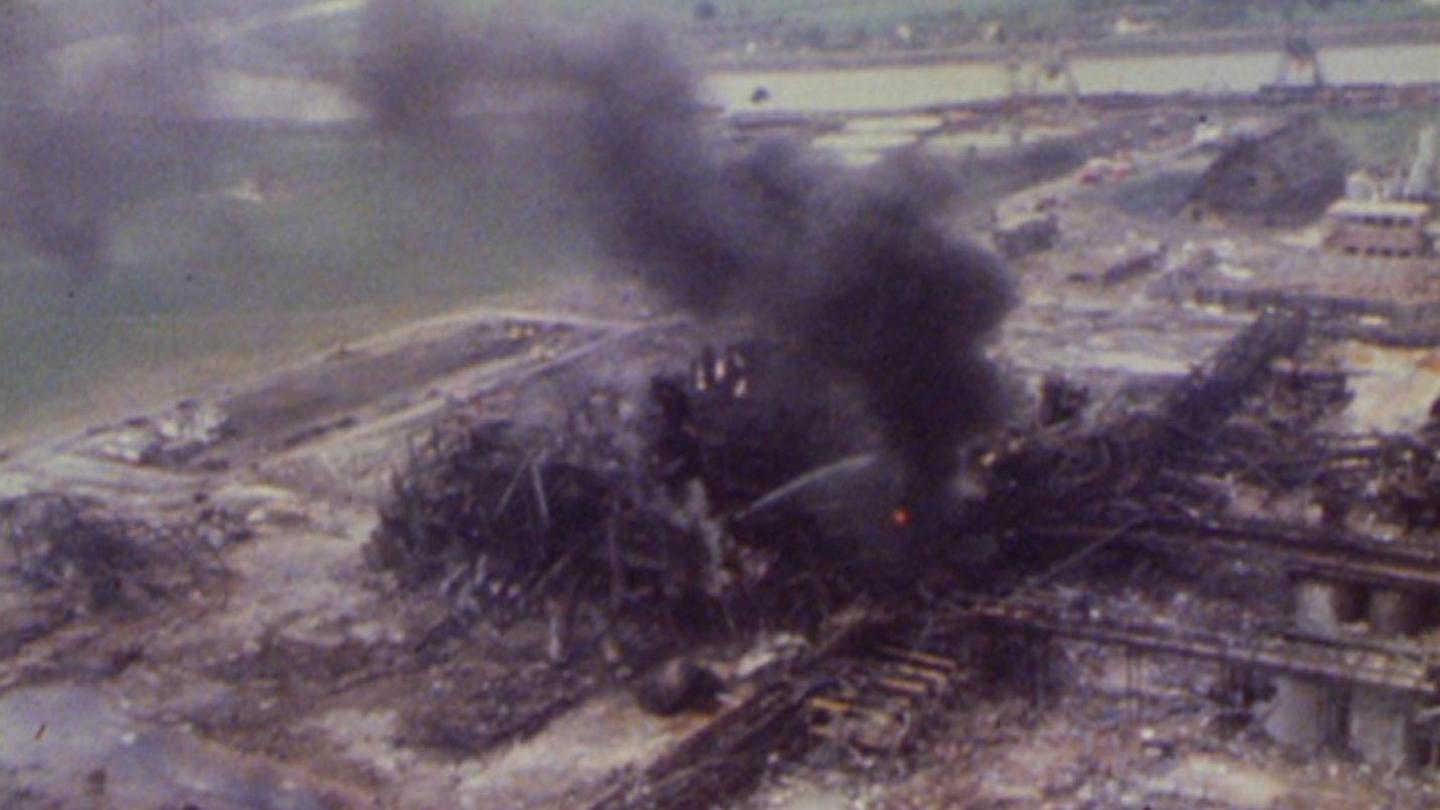
The disaster claimed the lives of 28 people and many more were left injured
The then 24-year-old was hit by debris as he rushed with colleagues from his lab, which overlooked the main factory, to a rendezvous site.
“When the explosion happened I got sort of blown along the floor and ended up with an aluminium sheet on top of me," recalled Mr Hotchin, now 74.
"Somebody dragged it off me.
“I just looked over me shoulder and you could see everything exploding around you."
While Mr Hotchin survived, his childhood friend was among those killed and the chemist was left struggling with the nightmare of the devastation in the ensuing months.
"We was (sic) walking wounded," he said.
“I had stitches in me (sic) elbows and braces on me (sic) knee and legs.
"Initially for the first year or so I did wake up once or twice screaming during the night."
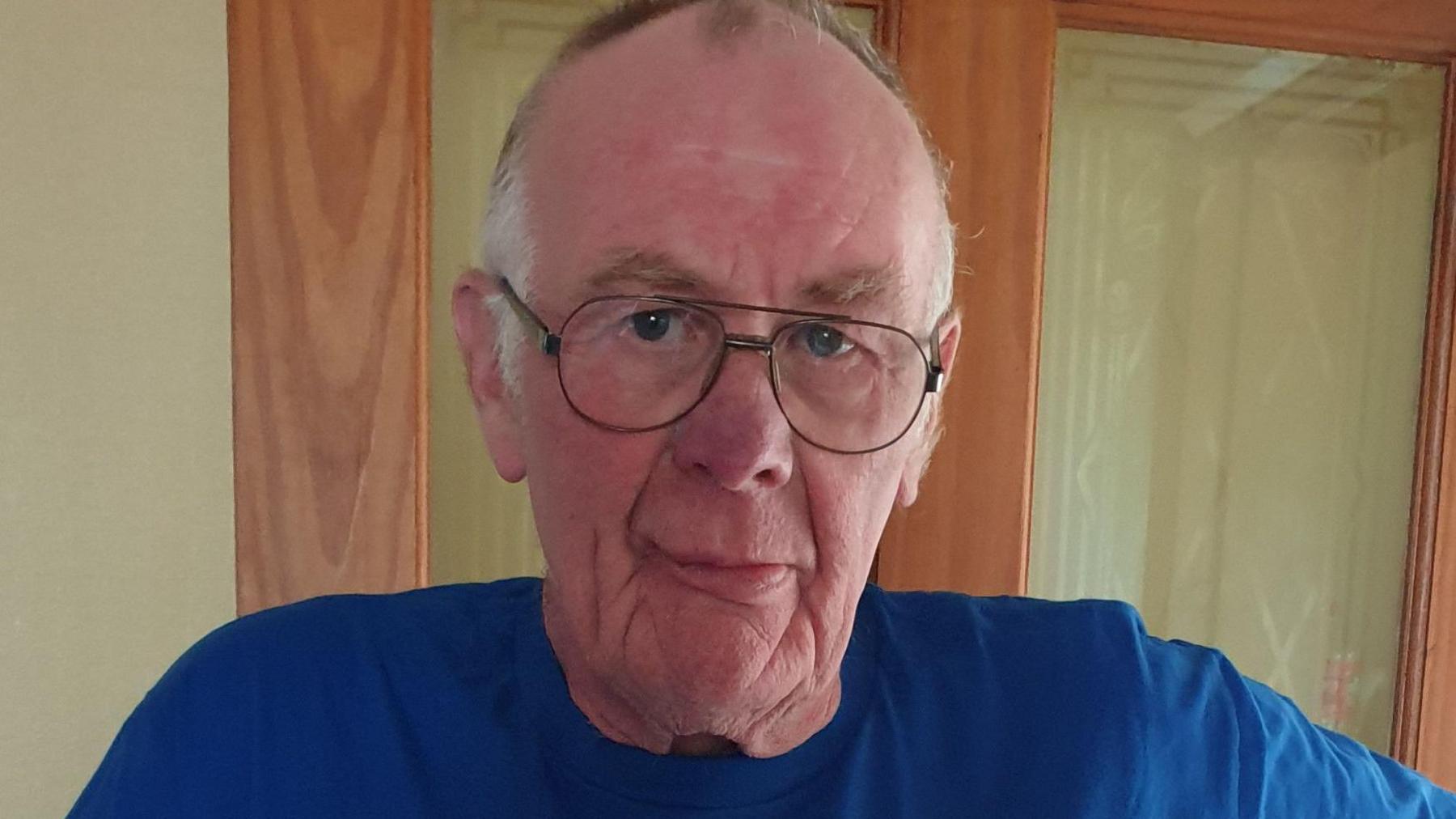
Eddie Hotchin's short-lived career at Nypro ended not long after the plant erupted
The consequences of the blast could be seen for miles and fires continued to burn for 10 days. At its height, 49 appliances were involved in tackling the blaze.
Terry Bontoft was one of the first firefighters at the scene.
Getting to the site was difficult, he recalled, and involved navigating blocked or damaged roads and downed 33,000-volt cables.
Mr Bontoft said: "When we arrived at the top of the hill, we were met by, goodness me, 40 acres of fire.
"You could literally feel you were beginning to burn. It was seriously hot. And that was two fields away."
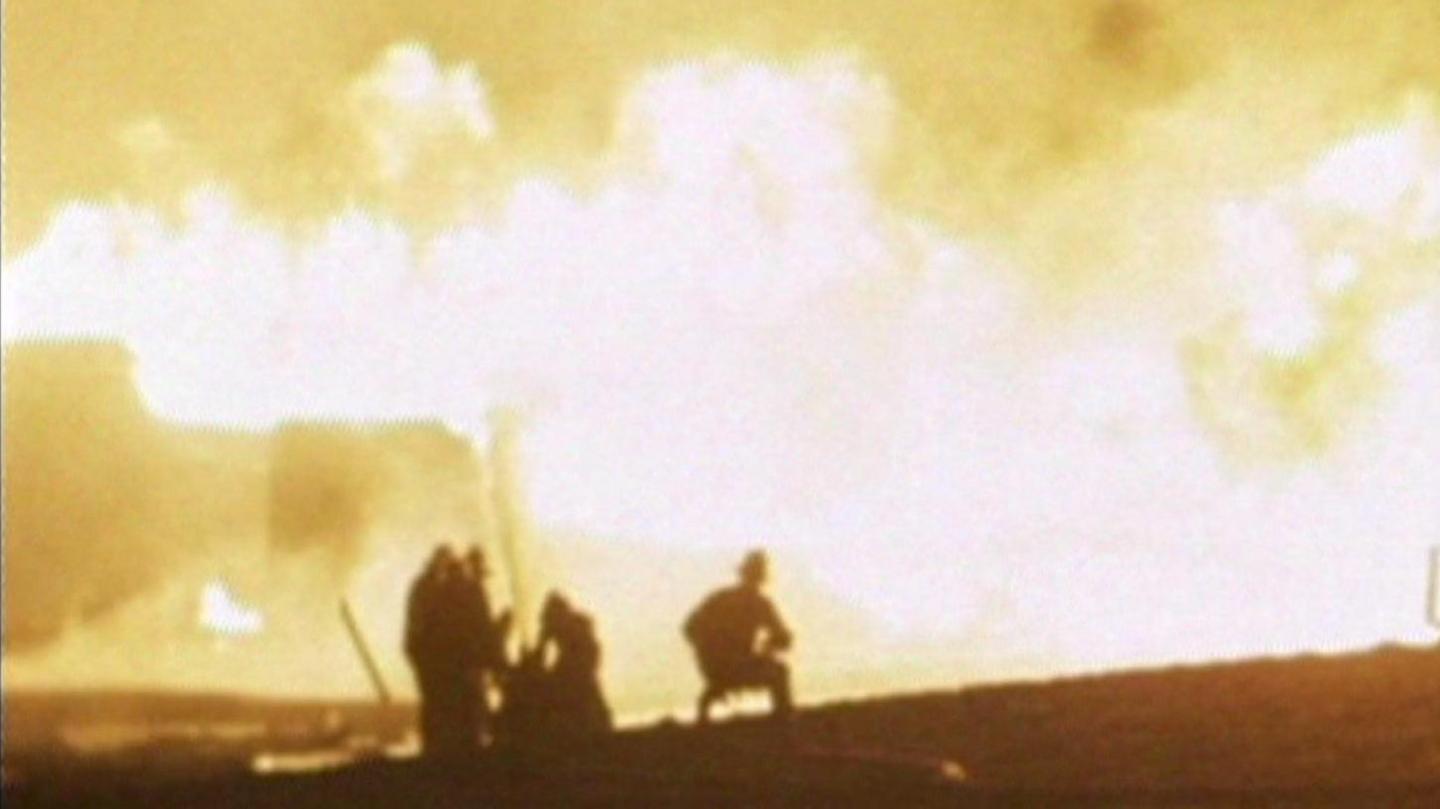
The explosion led to the then biggest fire-fighting operation since the 1940s
It was a relentless task tackling the blaze, recalled the 79-year-old.
"We couldn't stop because we could see the massive plume of smoke and it was a very difficult decision to go past people who were obviously distressed.
"All action was to try and save anybody and find anybody who was still alive."
Leaving them behind was "pretty hard to swallow", reflects Mr Bontoft while choking back tears.
When he finally returned home after about 12 hours of rescue efforts, the firefighter "cried". He would later find out a former colleague, who worked at Nypro, was among the fatalities.
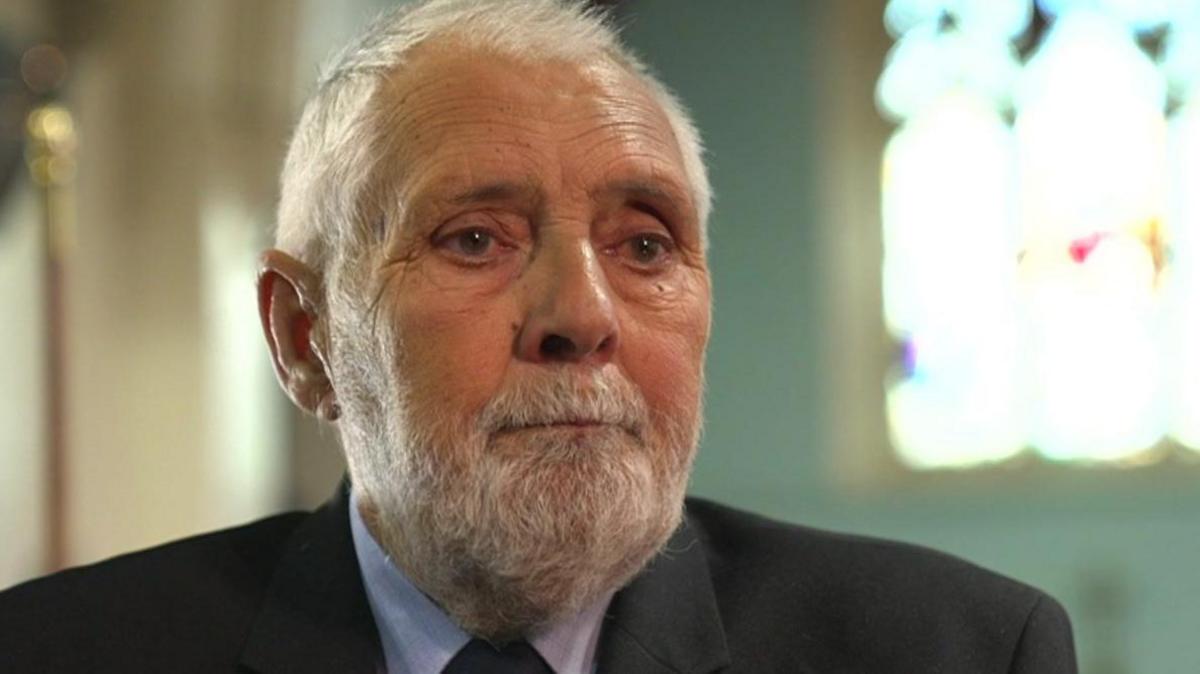
Terry Bontoft was one of the first firefighters to arrive at the scene
As the blaze raged, Mrs Nimmo headed straight for duty at the local A&E unit while her husband searched for relatives around the site.
As more and more victims arrived "from everywhere", the sense of fear and intense dread was palpable for the young nurse.
"I think I was probably a little bit anxious. It was the first local emergency that I had to deal with.
"Your sense of duty kicks in and you just get on with [it].
"You don't forget those people that died on that Saturday morning."
Mrs Nimmo's home was among those damaged.
Her bedroom was plastered in debris and shards of glass, while a freestanding wardrobe had been blown on top of her bed.
"I just remember thinking thank goodness for destiny. It could have been very different."
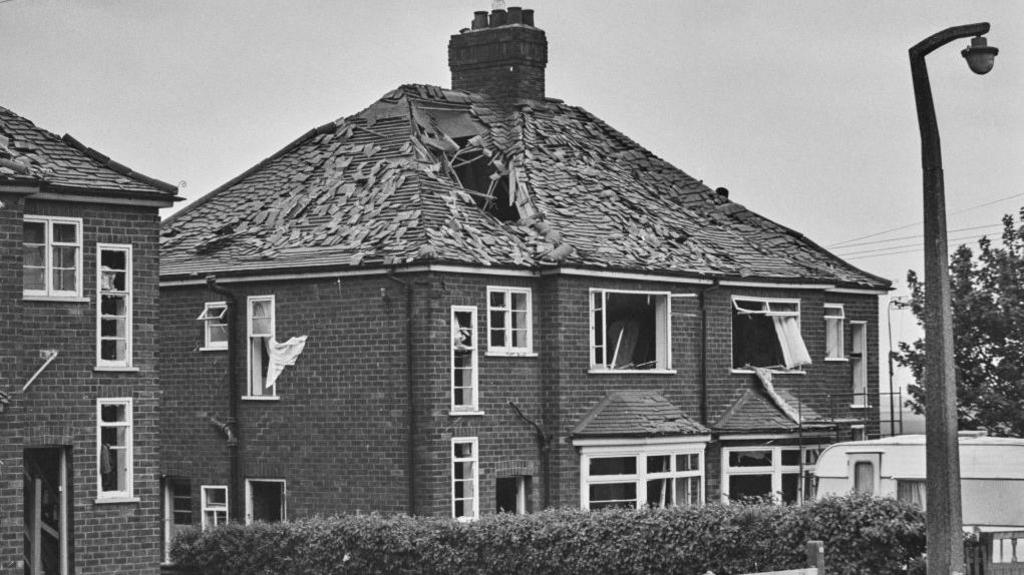
Homes were badly damaged in the blast
While "lessons were learnt" with the introduction of the Health and Safety at Work etc. Act 1974 later that same year, the incident marked the end of Mr Hotchin's short-lived career at Nypro.
He lasted only a day after returning from sick leave and was on the brink of a nervous breakdown.
On his first day back the chemist was climbing an access ladder to a storage unit when he "froze solid" 10ft (3m) above the floor and needed to be rescued.
“I didn’t work again at Nypro after that," he added.
While he considers himself lucky, the effects of the disaster left him struggling mentally.
"I’m extremely worried about thunder and lightning, but I'm not as bad as I used to be."
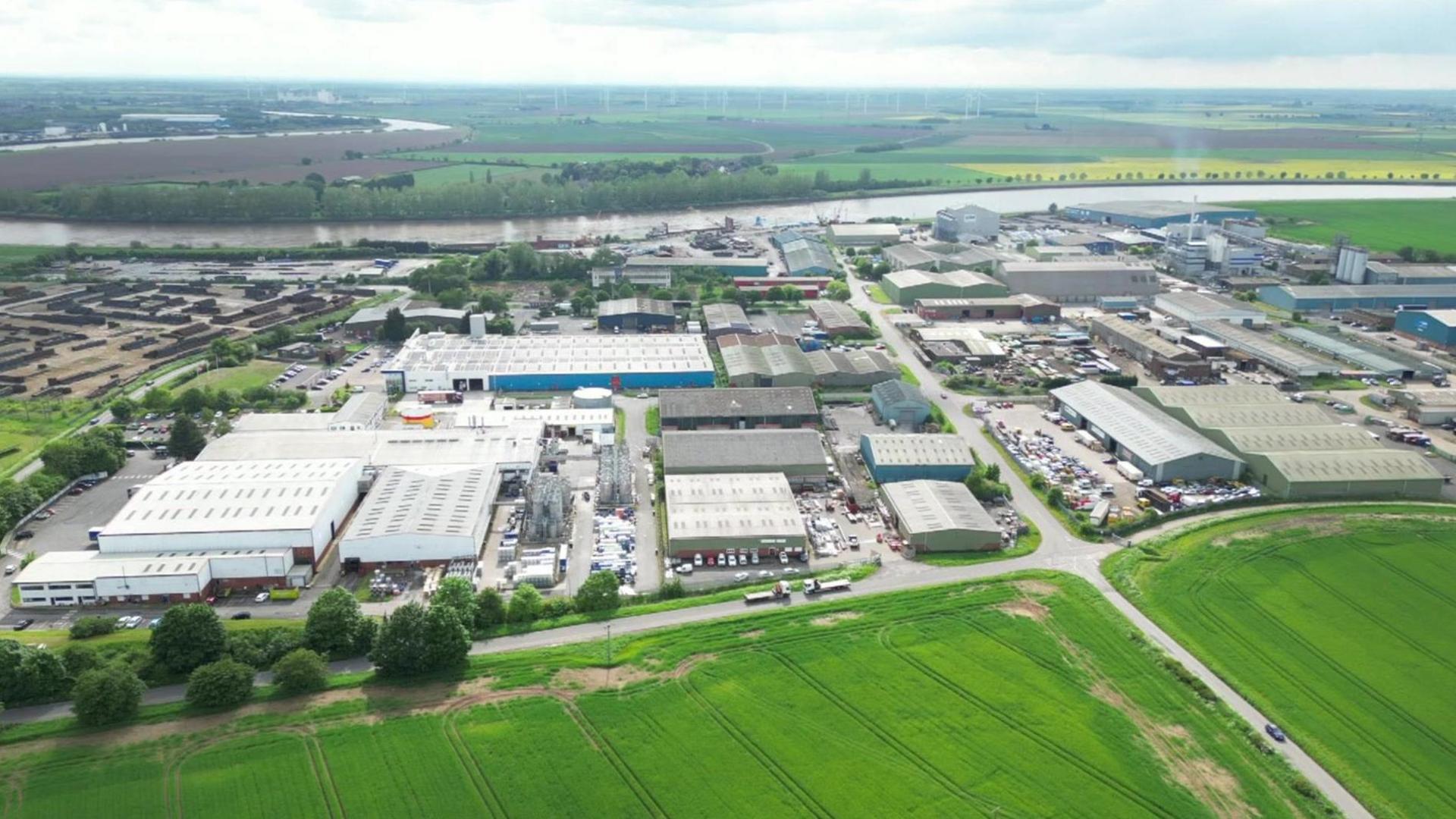
The site has been flattened and turned into an industrial estate
The plant closed some time after it was rebuilt and the site transformed into an industrial park populated with various businesses. A memorial to the victims stands in nearby All Saints Church.
For many, including Mrs Nimmo, the "community spirit and everyone pulling together" was among the defining moments of the disaster.
"There are very few things that take you back to a moment in time," she said. "Flixborough takes you back to a moment in time.
"That loud sound of Nypro blowing up is something that when you heard it, you would never forget it."
Follow BBC Lincolnshire on Facebook, X (formerly Twitter), external, and Instagram. Send your story ideas to eastyorkslincs.news@bbc.co.uk, external
Related topics
- Published18 May 2024
